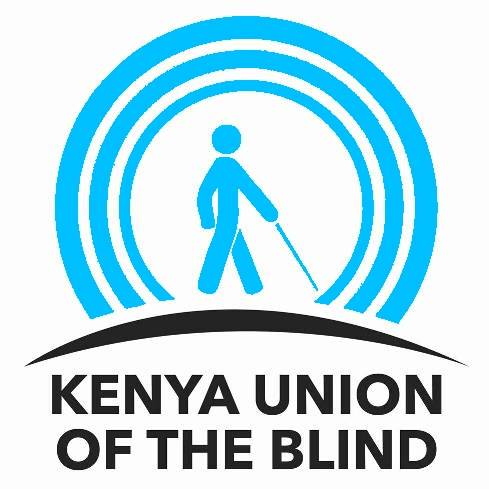Project
National Action on the Book Famine
-
Amount Funded
75,889 EUROProject Duration
01 Jan 2019 - 31 Dec 2020 -
-
Lead organisation
-
Kenya Union of the Blind (KUB) is the national organisation of the Blind and Partially Sighted. KUB contributes to the advocacy and adoption of the Persons with disability Act (PDA) 2003 which is by far the most progressive piece of disability legislation witnessed in Kenya. KUB mobilises the disability movement to shaping the referendum that birthed the constitution of Kenya (CoK) 2010. KUB’s contribution in the constitution reforms process was realised when CoK 2010 recognised Braille and Sign language as communication modes in public and government circles.
-
Organisation
Kenya Union of the Blind (KUB) is the national organisation of the Blind and Partially Sighted. KUB contributes to the advocacy and adoption of the Persons with disability Act (PDA) 2003 which is by far the most progressive piece of disability legislation witnessed in Kenya. KUB mobilises the disability movement to shaping the referendum that birthed the constitution of Kenya (CoK) 2010. KUB’s contribution in the constitution reforms process was realised when CoK 2010 recognised Braille and Sign language as communication modes in public and government circles.
-
Project
National Action on the Book Famine project pilots actions to trigger and support the implementation of the Marrakesh treaty in Kenya, which has direct demeanour to improve quality of education for learners and trainees with visual impairments. The project contributes to the global efforts on inclusive and equitable education as provided for on SDG No. 4 and the National Education Strategic Sector Plan (NESSP 2018-2022) anchored on vision 2030. The project supports national and county level pedagogy interventions which delivers both policy stakeholder engagement and service delivery outputs within Kenya’s special needs education (SNE) space. Inclusive education is a priority on Kenya’s action plan and agenda arising from the recently concluded Global Disability Summit (GDS) in London held in July 2018.
-
-
National Action on the Book Famine project pilots actions to trigger and support the implementation of the Marrakesh treaty in Kenya, which has direct demeanour to improve quality of education for learners and trainees with visual impairments. The project contributes to the global efforts on inclusive and equitable education as provided for on SDG No. 4 and the National Education Strategic Sector Plan (NESSP 2018-2022) anchored on vision 2030. The project supports national and county level pedagogy interventions which delivers both policy stakeholder engagement and service delivery outputs within Kenya’s special needs education (SNE) space. Inclusive education is a priority on Kenya’s action plan and agenda arising from the recently concluded Global Disability Summit (GDS) in London held in July 2018.
-
Policy adoption to end book famine
The Kenya Union for the Blind (KUB) implemented an influencing project from Jan 2019 to Dec 2020. The project National Action on the Book Famine (NABFA) piloted actions to trigger and support the implementation in Kenya of the Marrakesh treaty, which has direct potential effect of improving quality of education for learners and trainees with visual impairments.
KUB has worked with stakeholders since June 2013 to lobby for the ratification of the treaty in Kenya. Kenya officially ratified the treaty in June 2017. After the ratification, the law continues to gather dust at the Kenya Copyright Board (KECOBO), the agency responsible for its enforcement. The project contributed to global efforts on inclusive and equitable education as provided for on SDG No. 4 and the National Education Strategic Sector Plan (NESSP 2018-2022) anchored on vision 2030. As a result of the collaborations and partnerships established, KUB worked in collaboration with various actors to achieve different aspects of project outcomes i.e. working with special schools and various state ministries, departments and agencies (MDAs) i.e. Ministry of Education (MoE) Kenya Institute of Curriculum Development (KICD), Office of the Attorney General, Kenya Copyright Board (KECOBO), among others. Collaboration also featured private sector organisations, civil society organisations (CSOs) and media.
Additionally, 24 teachers were equipped with Adapted Digital Literacy skills. Further, 1000 textbooks were reproduced in Digital Accessible Information System (DAISY) formats with 2000 copies of the Marrakesh treaty text reproduced and delivered to stakeholders’ in accessible formats. In 2020, KUB established a portal to enhance access and sharing of textbooks equitably and as a result about 250 pupils are not able to access digital books in schools with additional books to be uploaded onto the portal. With all the initiatives and partnerships developed throughout the project, the project has contributed to adoption of policies and practices that promote digital learning and access to books for the print disabled. Similarly, the concept of Adapted Digital Learning for learners and trainees with visual impairments in special schools for the blind had taken shape in within 24 months. The Marrakesh treaty is now domesticated by the Kenyan government and 79 contracting parties (105 countries) and therefore guarantees a future where all visually impaired persons can access books without limits.
Subsequently, a new Book On Demand (BOND) portal has been established where some 250 students started accessing digital books on demand. This enhances access and sharing of text books equitably. Significant changes have been noted with the MoE that demonstrated goodwill, commitment and willingness to support policies that promote access to books and digital learning as well as provision of alternative forms of learning to the visually impaired learners.
KUB will continue working with MoE and project schools to ensure that adequate evidence is generated to strengthen action on the book famine among populations of visually impaired persons. The KUB Centre for Adaptive Technologies will be responsible to following up with the MoE and scaling of the NABFA project in schools for the visually impaired. The centre will also monitor the implementation of the Marrakesh treaty and the policy on education for learners and trainees with disabilities.



